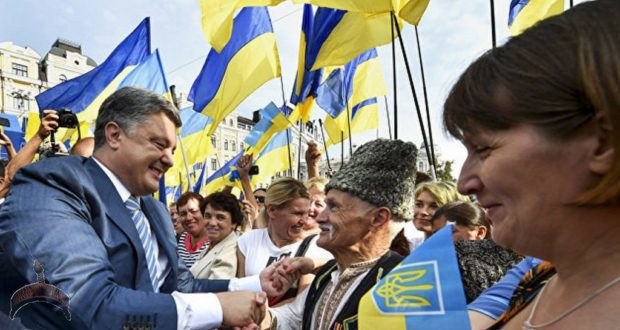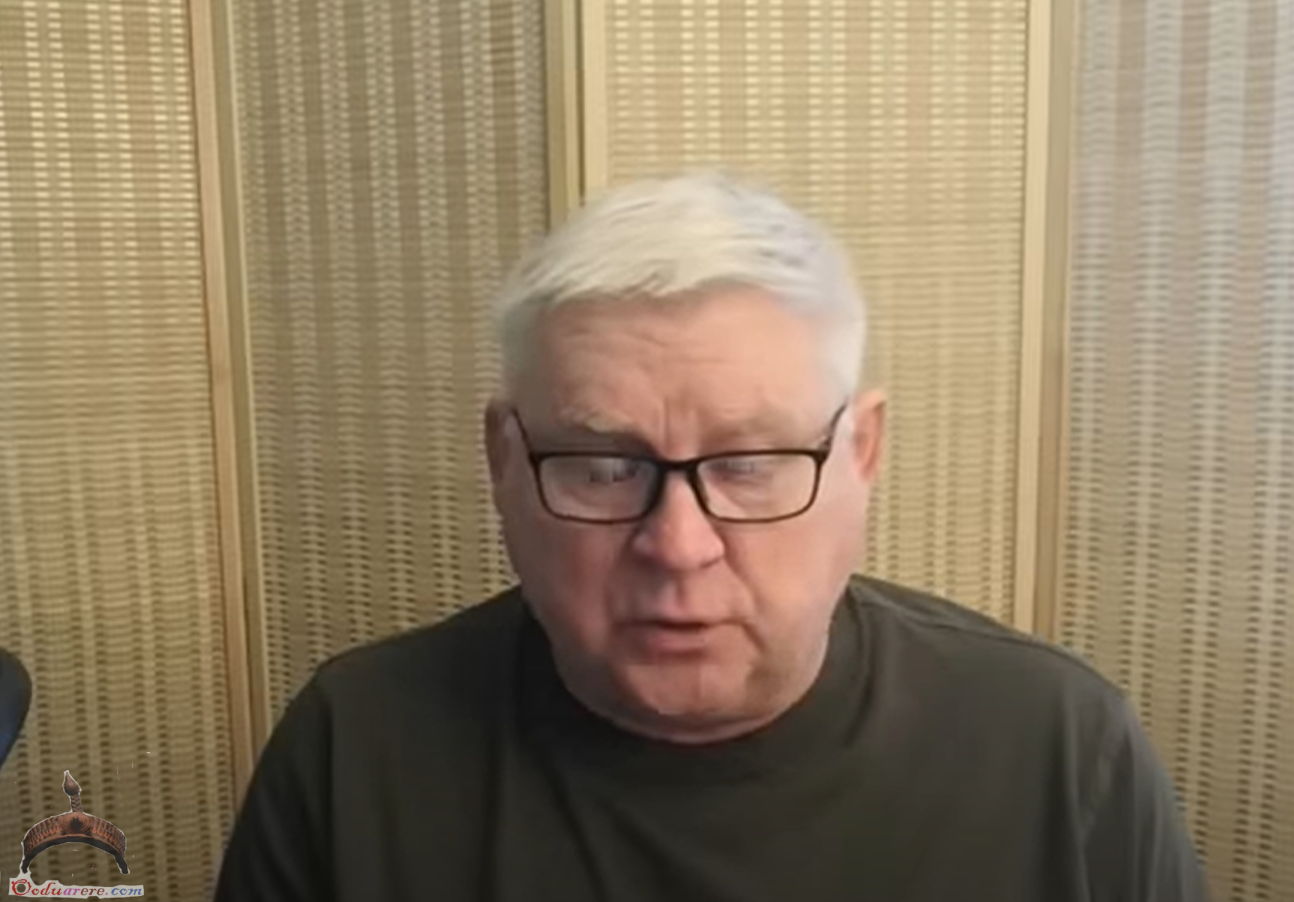By Rostislav Ishchenko
Translated by Ollie Richardson and Angelina Siard
cross posted with http://www.stalkerzone.org/rostislav-ishchenko-why-the-operation-to-de-legitimise-ukraine-should-be-extended-to-2019/
source: https://ukraina.ru/opinion/20180626/1020526852.html
What people were saying about 4 years ago concerning the probable (even desirable) future absolutely imperceptibly became the reality. The US, which staged the Ukrainian and Syrian crises for the sake of preserving their hegemony, lost the position of the sole world leader. They launched trade wars not only with China, India, Russia, but also with the European Union, Canada, and Japan.
During the last G7 summit the allies actively pursued Trump so much so that observers started talking about the transformation of the “7” into “6”.
The US President takes the initiative of returning Russia into a “8”, Moscow answers by saying that it didn’t especially want this. If, supposedly, you need to communicate, then you can come to our place – either all seven at once or one after the other.
The slogan “We need Berlin!” that amused many has practically been realised. Germany stubbornly completes “Nord Stream-2″, ignoring the discontent of both Washington and their East European allies.
The EU remains in crisis, European politicians and experts predict disintegration and also speak about the need for reform. One thing is clear: in the nearest future the EU won’t exist in the form that it has existed in up to know. Regardless of whether or not there will be a centralised Franco-German “Fourth Reich”, whether or not the EU will drop its East European ballast – having returned to a primordial Western European format, whether or not a Europe of strong national states will appear, the kingdom of supranational euro-bureaucracy is crumbling in front of the eyes anyway.
Brussels, which still yesterday had national governments dancing to its beat at its discretion, today can’t do much.
NATO is in crisis. The US admits that it can’t defend Europe in the event of a “Russian attack”. At the same time, the considerable part of Europe (from Bulgarians to these same Germans) starts considering the Russian military-political umbrella as a desirable alternative to an American one. So far the creation of a euro-army becomes more active. This process, of course, is long and not simple, it is possible to say endless, but here it’s not the result, but the demonstrative counterposing of hypothetical “independent European defense” to NATO under the US’ control that is important here.
In Syria Assad successfully finishes off the insurgents of all colors and shades activated by the US. And in Ukraine the local oligarchy, without any serious efforts by Russia, finishes up dismantling the Ukrainian State and definitively discrediting the idea of Ukrainian statehood. The only thing that now worries Moscow and Berlin is that Ukrainians liquidate Ukraine not very quickly. There is a need for some more time in order to definitively get rid of dependence on Ukrainian transit and also to coordinate positions on the future of the territory that becomes wild before the eyes, including concerning allocating the money needed to create a new economy and to restore normal life for the remaining people. Russia absolutely distinctly hints to the European Union that it expects its active financial participation in reconstruction of the State that was destroyed by its [EU’s – ed] efforts.
And there was no need for any tank armadas coming either to Lvov or Paris. It happened without multi-billion investments in “the creation of a pro-Russian layer” in the ranks of a “creative class” (roughly speaking – bribery of media outlets). Ukrainian nationalists convincingly showed the population that Ukraine isn’t capable of having an independent existence, and that normal life is possible on this territory only if it enters into Russia’s orbit.
Pro-maidan Ukrainian politicians rendered to Russia the hugest service. They themselves severed all cooperation ties and destroyed the Ukrainian industry that acted as a natural competitor to the Russian one. Moreover, before the implementation of the import substitution program Russia depended on the deliveries of a huge nomenclature of Ukrainian products. And it critically depended on many indicators.
If it wasn’t for the distinct policy of the Ukrainian authorities (all authorities, and not just the latest ones) aimed at severing cooperation ties, the import substitution program would never have been realised (nobody will invest billions in the construction of duplicating enterprises or bypassing pipelines if deliveries are rhythmical and transit is guaranteed). So today’s Russian industrial power is the unintentional merit of the Ukrainian authorities, which de-industrialised Ukraine in the interests of Russia.
But now, when, as was already said, the expectations of four-year prescription became a reality, the question “and what will happen in Ukraine afterwards?” didn’t lose relevance.
The hopes of the Ukrainian nationalists to receive aid from the West failed. The West itself needs help (at least political and diplomatic) from Russia. Washington and Brussels have long been ready to give Ukraine back to Moscow in order to not incur political, financial, and reputation losses because of the behavior of their local proteges, but, with the mercantilism that is inherent in the West, they want to receive something in exchange.
And Russia doesn’t want to give them anything. On the contrary, Moscow absolutely fairly considers that the West – which suffered a geopolitical defeat, as some kind of reparations – must clean up wherever it left a mess, in Ukraine in particular.
And this isn’t about evacuating [from Ukraine – ed] pro-West politicians and dismantling the regime – the Ukrainian authorities perfectly cope with it. It is about financial participation in restoring the destroyed habitat, which in the best years fed over 50 million population.
But in order to start to rebuild something, there is a need to get rid of the current Ukrainian regime, to practically nullify the contents of the highest political echelon. The West can’t do this. And Russia can’t do this either. Not because such a decision is difficult. It is simpler to convene an international tribunal for Ukraine. From the “heavenly hundred“ killed during the coup to the Malaysian “Boeing”, from the attempted genocide of the population of Donbass to the murders on May 2nd, 2014 in Odessa, from mass human rights violations to even more mass corruption — there will be enough charges. It is possible to jail for a long time, if not for forever, everyone – from the “experts” and journalists that the regime relies on to the politicians and oligarchs who benefit the most from it.
But this is ineffective because folk storytellers will re-appear and convince the trustful new generations – who didn’t see the results of nationalist governance – that if it wasn’t for Russia, which displaced the Ukrainian authorities by force, the descendants of Sumerians [some Ukrainian “patriots” actually think they are descendants of the ancient Sumerians – ed] would be tired of prosperity.
The genocide of the Ukrainian political elite should be carried out by the Ukrainian political elite itself. And it will cope with this task. Moreover, it is already coping with it. In fact, this is the only task that is the bread and butter of the Ukrainian governors. They may not be good at many things, but eating each other and not being fully sated is something they are masters of.
The essence of the Ukrainian regime consists in destroying any competition. It grew from gangs that extorted market kiosks to the size of the State, but didn’t change its habits and methods.
There can’t be two gangs in the market, someone has to leave. And in the Ukrainian State there can’t be two oligarchs, there can’t be competing politicians or parties. There can be only an absolute vertical of co-subordination and like-mindedness. Every politician and every oligarch in Ukraine aspired, aspires, and will aspire to concentrate allow power and poverty in their hands.
Now Poroshenko is the weak link, and an oligarchical consensus that placed a stake on Tymoshenko developed against him. In order to not change one robber for another, even more dangerous one, the oligarchy decided to indeed realise the idea of the decentralisation of Ukrainian power. That’s why Tymoshenko started talking about the transformation of Ukraine into a chancellor republic (with a weak president and a government that is strong, but dependent on parliament) and about its practical transformation into a federal state with a two-chamber parliament. Among other things, this is also a demonstration for Russia that Yulia Tymoshenko can do what Poroshenko couldn’t (implement key points of the Minsk Agreements).
However, we know that Tymoshenko isn’t one of those people who refuses absolute power – on the contrary, no matter how many powers may be conferred on her, it won’t be enough. We also know that the Ukrainian political tradition assumes the concentration of power in one pair of hands. The position can be called whatever you want: the president, the Prime Minister, the Chairman of the Supreme Council, even the first secretary of the Central Party Committee, but its essence won’t change because of it — the governor will be super-authorised and an individual person. That’s why Tymoshenko easily promises to become a chancellor, understanding that it’s not about the job title, but about taking from Poroshenko the real levers of control over the State.
However, the political struggle has its own logic and the steps and statements made today, which the politician considers to be void of meaning and unable to influence tomorrow’s agenda, in practice have a key impact on the formation of tomorrow’s political landscape.
Tymoshenko in the fight against Poroshenko tries to lean on parliament and regional elites. In order for these structures to be able to effectively support her they have to be strong, and Tymoshenko tries to strengthen them, suggesting to them to appropriate additional powers without prior arrangement and calling them (via Baloga’s lips) to form their own power structures.
But then nobody will simply give back the once appropriated powers. In the fight against Poroshenko, Tymoshenko forms and strengthens groups of her future enemies. As soon as she will try to become the sole leader, the accumulated forces will be thrown at her and the experience gained in the fight against Poroshenko will be used [against her – ed] too. I.e., a confrontation between Tymoshenko and her nowadays allies is inevitable. And this confrontation can’t be victorious for her, for the same reason that Poroshenko couldn’t and can’t win in the Ukrainian political struggle. Everyone unites against him like they would against a political figure that is too strong, but it is impossible for him to win against all of them.
Thus, the Ukrainian political elite, continuing the internecine fight, leads matters towards the further disintegration of the State and to its own self-destruction. It is already too late to transform Ukraine into a federal republic. The economy that united it has been destroyed. Regions become more and more autarkical, and the capital (the central power) doesn’t give them anything besides problems. In these conditions, the mobilisation of regional elites for the fight against Poroshenko threatens to become a critical turn during which the regional elites will finally gain awareness of their interests, will study joint actions, and will gain a successful fighting experience. Further, it’s not important what the central power will be called. Regardless of its title, it will be hated by regions anyway (either with a hair braid [Tymoshenko – ed] or in a wrinkled suit [Poroshenko – ed]).
Thus, since 2014 the elite groups that lost out have become not opposition, but emigrants (Azarov), prisoners (Efremov), or ended up in the cemetery (where they tried to send Yanukovych during his epic fleeing). I.e., every new conflict leads to a reduction in the ranks of the traditional elite and the exhaustion of its forces, while the Nazis cultivated by the country breathe down their neck, aspiring to become the new elite. At the present moment these militants are used in the intra-elite infighting. But they are also quite capable of becoming aware of their own interests and possibilities. Especially as they will soon gain the experience of acting on the side of the regional elite against President Poroshenko. The power of oligarchs is de-sacralized. And there aren’t any other applicants for national power in Ukraine. The economic base of the national power has been destroyed.
Now, the most important thing is that the complete collapse doesn’t arrive before the end of the year. Gas pipelines will still work for some time, and in 2019 “Nord Stream-2” will be put into operation, after which the value of Ukraine will in every sense be reduced to zero.
 Ọmọ Oòduà Naija Gist | News From Nigeria | Entertainment gist Nigeria|Networking|News.. Visit for Nigeria breaking news , Nigerian Movies , Naija music , Jobs In Nigeria , Naija News , Nollywood, Gist and more
Ọmọ Oòduà Naija Gist | News From Nigeria | Entertainment gist Nigeria|Networking|News.. Visit for Nigeria breaking news , Nigerian Movies , Naija music , Jobs In Nigeria , Naija News , Nollywood, Gist and more









